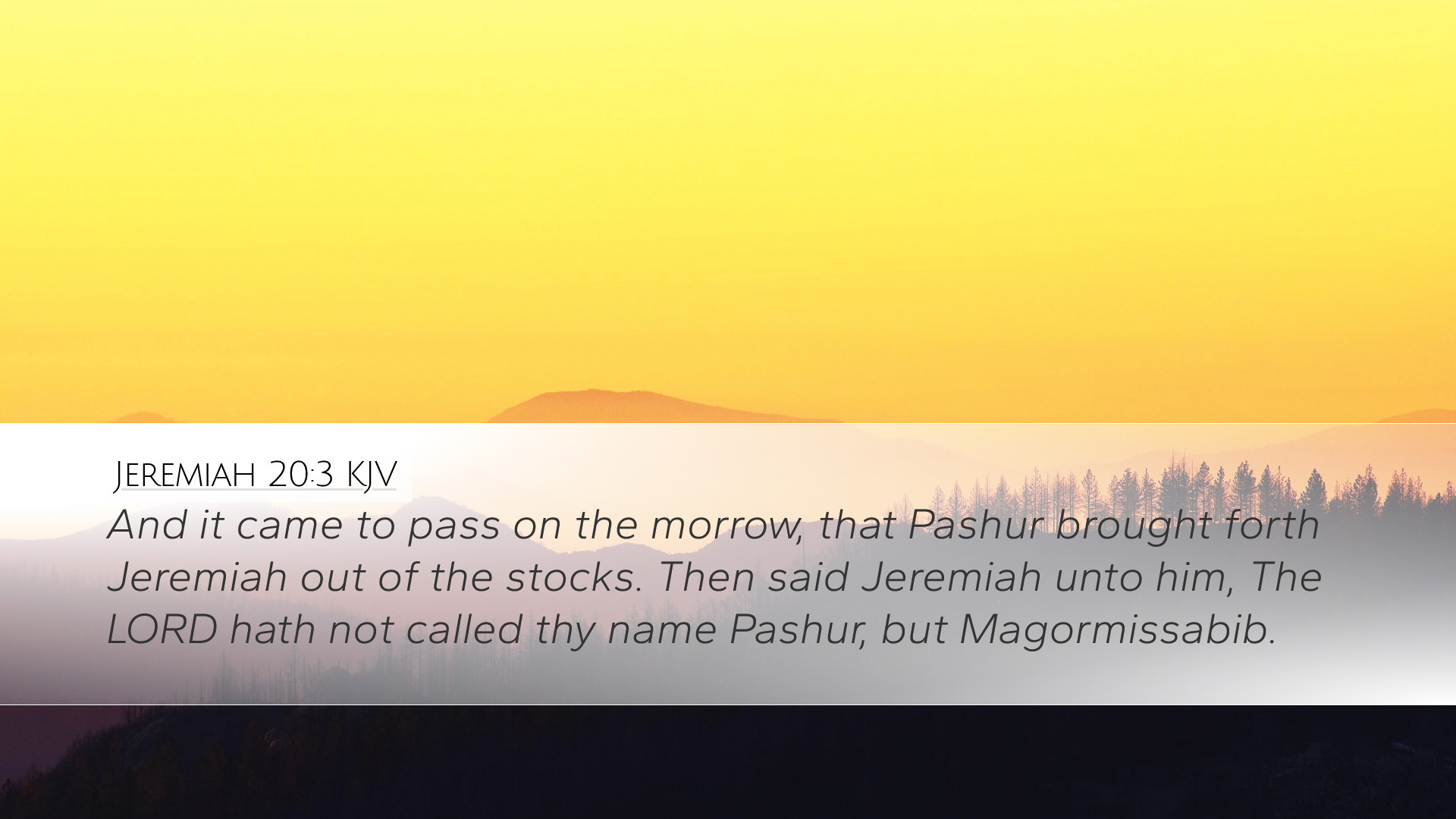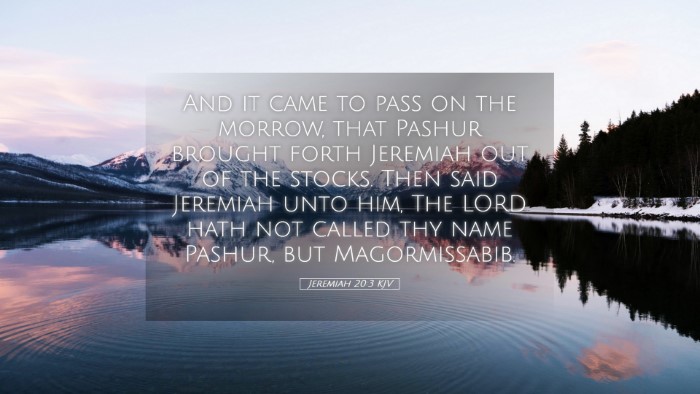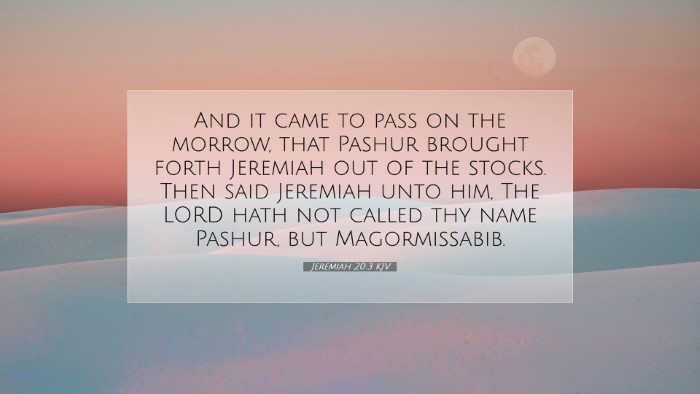Commentary on Jeremiah 20:3
Jeremiah 20:3 states: "And it came to pass on the morrow, that Pashur brought forth Jeremiah out of the stocks. Then said Jeremiah unto him, The Lord hath not called thy name Pashur, but Magor-missabib."
Contextual Background
This verse occurs in a poignant narrative where Jeremiah, a prophet of God, faces persecution due to the message he delivers. Jeremiah’s prophetic ministry carries profound weight, warning Israel of impending judgment due to their unfaithfulness. The background includes the political and social turmoil of Judah during one of its darkest times.
Summary of Insights from Public Domain Commentaries
Matthew Henry’s Commentary
Confinement of the Prophet: Matthew Henry elaborates on the condition under which Jeremiah prophesies. After delivering a harsh message regarding the impending doom, he finds himself imprisoned by Pashur, who is a priest and chief governor in the house of the Lord. This act is indicative of the hostility faced by those who courageously speak God’s truth.
Pashur’s Name Change: Henry notes that Jeremiah's declaration that God has renamed Pashur to "Magor-missabib" implies that instead of peace, Pashur will encounter terror—symbolizing his impending doom. This name means "terror on every side," which signifies not only Pashur’s fate but serves as a broader warning to all of Judah.
Albert Barnes' Notes
The Significance of Stocks: Barnes highlights that the stocks, as instruments of severe punishment, express the depths of Jeremiah’s suffering for standing firm in the prophetic declaration. It symbolizes the rejection and punishment of God’s chosen messengers by those in positions of authority.
Prophetic Authority: Barnes discusses Jeremiah’s firm response to Pashur, underlining the authority of God’s word above the decisions of men. He stresses that regardless of human opposition or judgment, God remains sovereign and His proclamations unmistakably true. Jeremiah asserts the truth of God over human opinion.
Adam Clarke’s Commentary
Understanding Pashur: Clarke provides insight into the significance of Pashur's role and his name, which means “free,” denoting a sense of irony since he brings Jeremiah into bondage. Clarke points out that the name "Magor-missabib" encapsulates God's message that Pashur’s apparent security is actually leading to catastrophic judgment.
The Role of the Prophet: Clarke stresses the burdensome role of the prophet. Jeremiah's laments reflect the psychological trauma of being a voice of dissent amidst popular rebellion. The transformation of Pashur spiritually reflects the theme of God’s justice versus man’s folly.
Theological Implications
Persecution of Prophets: The passage sheds light on the reality of prophetic ministry. It reiterates that those who proclaim God’s truth may face severe backlash from societal and religious institutions. Such persecution is part of the believer's journey, calling back to Jesus’ own forewarnings of persecution (Matthew 5:11).
Divine Judgment: Jeremiah's message to Pashur serves as a dual reminder of God's mercy and justice. The change of name signifies both a personal judgment that is about to befall Pashur and a sobering reminder of God's overarching sovereignty in the affairs of nations and individuals.
Hope amidst Persecution: For past and contemporary readers, Jeremiah’s faithfulness amidst ridicule offers hope. It reassures the faithful that while they may experience backlash for their faith, God's ultimate plan prevails. The call to remain steadfast in one’s faith despite external pressures is underscored here.
Applications for Contemporary Readers
Encouragement for Ministers and Believers: Pastors and church leaders can draw profound encouragement from the persistence of Jeremiah. The narrative serves as a reminder that faithfulness to God's Word may lead to personal trials; however, such trials are often avenues for God’s truth to shine forth.
Re-evaluation of Human Authority: Students and theologians are challenged to assess their views on authority within religious institutions. The passage urges a careful examination of whether human authority aligns with God’s greater purpose, emphasizing the importance of discerning when to stand firm against contrary beliefs.
A Call to Brave Leadership: The themes of this passage ignite a call for brave leadership within the church. It highlights the necessity of proclaiming uncomfortable truths with love and tenacity, akin to how Jeremiah confronted Pashur.


